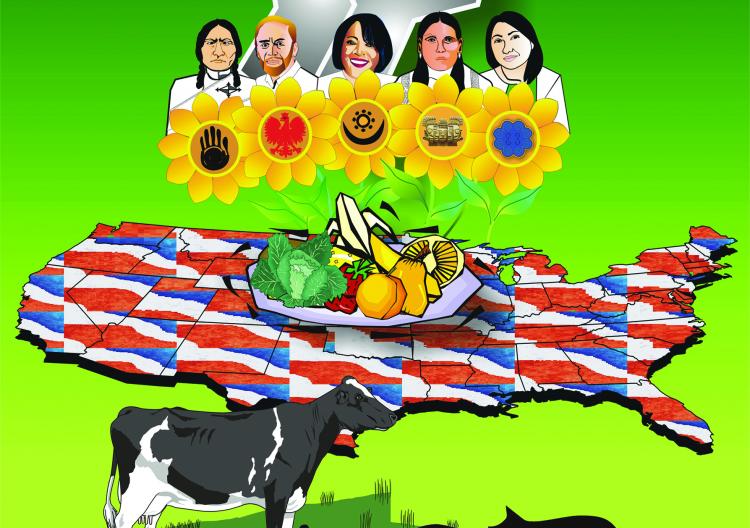Thirty Years Before the Masthead

Looking back at 30 years of Cooperative Grocer—a round number, worth noting?—I gave myself until 30 days before the deadline to write about it…but now that is down to something like 30 hours. The question remains…
One thing to mention: I enjoy that almost everything in Cooperative Grocer print and web pages is contributed by other folks—managers, directors, trainers, local and national leaders doing valuable work with food cooperatives. Perhaps the best part of those 30 years has been meeting and making friends with so many fine people and dedicated cooperators who share professional skills and camaraderie. I could use this entire column to name them.
The contributions by these many practitioners, demonstrating leadership and sharing homegrown lessons, have given Cooperative Grocer authenticity and credibility. Our low-budget approach worked well to create this magazine’s vital role during those three decades. Its role and impact have not been superseded, I daresay, but have contributed to the following:
• Despite increased competition in offering clean foods, a field in which they pioneered, food co-ops have continued to grow and to improve, becoming better at democratic governance and at managing co-op retail operations. In parallel fashion, the reports here have become deeper, more sophisticated.
• The advance of a strong national cooperative for purchasing and other shared needs, National Co+op Grocers (NCG), manifests the cooperation among co-ops built during years of groundwork. NCG’s impressive growth in shared services and membership signifies a new level of strength for the food co-op sector.
• A national association took responsibility for magazine and website improvements through Cooperative Grocer Network (CGN). The 30 years of online magazine archives and our ever-popular online co-op directory have been expanded through many additional resources and special discussion forums—see this issue’s update, and join the growing online co-op community at www.grocer.coop.
• Finally, the past decade’s wave of new food co-op development is generating inspiring stories. New co-ops, encouraged by other cooperatives, are especially supported by Food Co-op Initiative (FCI)—its reports and insights are regularly shared here.
Along with thanking the many contributors and allies mentioned, I’ll add a shout-out to Dan Nordley at Triangle Park Creative, who for over ten years has provided an essential publishing and design home for Cooperative Grocer, and who has worked very hard to foster its online expansion to today’s multifaceted web platform. He and Triangle Park continue as the publisher, while CGN executive director duties have been handed off to Ellen Michel.
This may be a good place to insert a reminder that I continue to seek your suggestions or offers of writing—without this, readers may not learn of a valuable project or perspective. As before, it is the voice of practitioners that gives power to the reports here.
I’m pleased to have helped share essential resources and am grateful for a co-op movement that continues to offer bright possibilities in a very threatening environment. Those threats come not only from larger competitors in the grocery market—though that is enough to keep us busy. I cannot apologize for occasional reminders of antidemocratic and inhumane forces in our society at large. Despite having sometimes surprised some readers with my remarks about our confused country, I insist that because our cooperative values and principles are necessary and substantial, contradictory trends and institutions must be named and opposed.
“If not now, when?” Business as usual is not an option. Truth-telling should be encouraged in co-op forums everywhere because critical arguments often are otherwise unheard, and the public’s ability to discuss and debate has atrophied. Co-ops, as this issue’s cover section reminds us, are community-owned enterprises operating in a society riven by race and class. Co-ops offer a democratic venue that is itself an important accomplishment.
Meanwhile, the mainstream economy is dangerously and unsustainably dependent upon the extraction of more finite resources and upon over-leveraged, unpayable debt (it’s time for a Jubilee). Cooperators rightly celebrate their values and accomplishments, but they also struggle within a society whose wealth concentration, war-making, and increasing consumption threaten the livelihoods and survival of everyone. Assuming we survive the climate disasters that are already occurring, local democratic enterprises will be essential examples of fairness and a way forward. ♦







